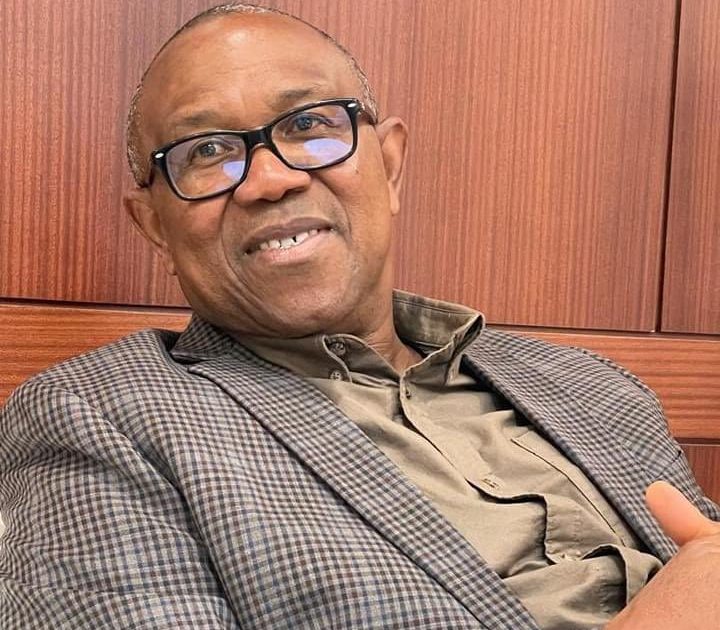Paragraph 1: Addressing Speculations and Affirming Party Membership
Yunusa Tanko, the National Coordinator of the Obidient Movement, a grassroots political mobilization group supporting Peter Obi, has categorically refuted claims suggesting Obi’s departure from the Labour Party. Amidst swirling rumors and speculations linking Obi to the Social Democratic Party (SDP), Tanko firmly asserted that Obi remains a committed member of the Labour Party. This clarification comes in response to statements made by Adewole Adebayo, the former SDP presidential candidate, who insinuated that both Peter Obi and Atiku Abubakar, the former PDP presidential candidate, were engaging in discussions with the SDP, potentially hinting at a future defection. Tanko’s unequivocal statement aims to dispel such rumors and reiterate Obi’s continued affiliation with the Labour Party.
Paragraph 2: Supreme Court Ruling and Leadership Clarification
Tanko’s statement also addressed the recent Supreme Court ruling that removed Julius Abure from his position as the national chairman of the Labour Party. Acknowledging the potential impact of this ruling on the party’s structure and direction, Tanko revealed that the Labour Party leadership is scheduled to convene a meeting within the week to address the implications of the court decision. This meeting is intended to provide clarity on the party’s stance and chart a course of action following the Supreme Court’s intervention. The outcome of this meeting is anticipated to put to rest any uncertainties surrounding the party’s leadership and potentially address the persistent rumors about Obi’s political future.
Paragraph 3: The Significance of Obi’s Political Trajectory
Peter Obi’s political journey has been marked by notable shifts and alliances. His emergence as a prominent political figure began with his tenure as the Governor of Anambra State under the All Progressives Grand Alliance (APGA). Later, he joined the Peoples Democratic Party (PDP), becoming a prominent voice within the opposition. Obi’s eventual move to the Labour Party significantly reshaped the political landscape in the lead-up to the 2023 presidential elections. His candidacy galvanized a substantial youth following, popularly known as the "Obidient Movement," and injected fresh energy into the political discourse. His continued presence within the Labour Party holds significant implications for the party’s future trajectory and influence.
Paragraph 4: The Dynamics of Nigerian Party Politics
The Nigerian political arena is characterized by a dynamic and often fluid party system. Party affiliations and alliances are not always fixed, and politicians frequently switch allegiances based on evolving political calculations and strategic considerations. Defections and realignments are common occurrences, often influenced by factors such as access to power, ideological shifts, and personal ambitions. This fluidity can create a sense of uncertainty and fuel speculation, as seen in the case of the rumors surrounding Obi’s potential defection. Understanding the dynamics of Nigerian party politics requires acknowledging the fluidity of party loyalties and the constant potential for realignments.
Paragraph 5: The Role of Media and Information Dissemination
The rapid spread of information, often fueled by social media and online platforms, can significantly impact political narratives and public perception. In the case of Peter Obi, rumors about his potential defection gained traction quickly, highlighting the role of media and information dissemination in shaping political discourse. While these platforms can facilitate the spread of vital information, they can also be conduits for misinformation and speculation. The need for critical evaluation and verification of information becomes paramount, particularly in the politically charged atmosphere surrounding elections and party affiliations.
Paragraph 6: Looking Ahead: The Future of the Labour Party
The Labour Party, once a relatively minor player in Nigerian politics, experienced a surge in prominence with Peter Obi’s candidacy. The party now faces the challenge of maintaining this momentum and consolidating its gains. The outcome of the leadership meeting, the resolution of uncertainties surrounding the national chairmanship, and Obi’s ultimate decision regarding his political future will all play crucial roles in shaping the party’s trajectory. The Labour Party’s ability to navigate these challenges and establish itself as a significant force in Nigerian politics remains to be seen. The party’s future will depend on its ability to build upon the momentum generated by the "Obidient Movement" and translate grassroots support into lasting political influence.


